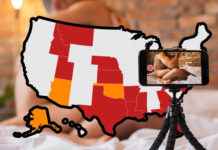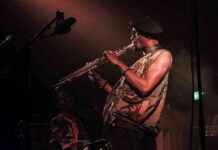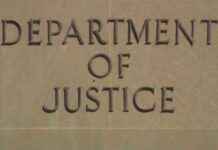The first criminal trial of a former president in the history of the United States begins in New York on Monday. Donald Trump is charged with 34 counts related to the document falsification scheme he created to bribe porn actress Stormy Daniels in 2016. In the middle of the election campaign, the tycoon bought his silence about a relationship they had had for a decade and justified the payments as part of his legal fees. Crimes that could lead to a decade in prison for the Republican candidate before the presidential elections in November, creating an unprecedented situation that, however, would not deprive him of running for office.
The trial was originally scheduled for March 25, but Trump’s legal team managed to delay it, arguing that he needed more time to prepare the defense. Last week, he filed as many as three appeals against the judge handling the case, Juan Merchan, claiming he has a conflict of interest because his daughter is a Democratic political consultant, but he could not delay the start any longer. of a criminal trial that is already inevitable: all three appeals were immediately rejected by an appeals court.
It is the least serious impeachment of the four that Trump faces (in addition to New York, in Washington, Georgia and Florida), but it could be his only trial before the election, since the strategy of delaying the other processes has more success.
The trial will begin with the selection of a jury of 12 anonymous citizens of New York, from among the hundred who are summoned this week. Each will have to answer 42 questions designed to test their impartiality about the former president: “What media do you consume?”, “Do you consider yourself a follower of the QAnon movement?”, “Do you have a strong opinion about former president and candidate Donald Trump ?”, others.
It is not clear how long the criminal proceedings may take, but a verdict can be expected before the November elections. Jury selection usually takes a week or two, and the testimony phase about a month, so the verdict could come in early June.
Each of the 34 felonies is punishable by a maximum of four years in prison, and several legal experts agree that if convicted, Trump could face at least a decade behind bars. The maximum sentence could be 20 years, the limit established in New York State for this class of crimes (Class E). However, this would not prevent him from standing in the elections, since no article of the Constitution forbids it, and the judge would probably allow him to attend his campaign events.
The case formally began in March of last year, when a Manhattan grand jury voted in favor of the indictment presented by District Attorney Alvin Bragg. The indictment alleges that, in the context of the election, Trump hid the $130,000 payment from public opinion and that this helped him win the election. In this way, the accusation of document falsification is aggravated by an alleged violation of state laws on the financing of electoral campaigns.
Trump made the payment through his lawyer, Michael Cohen, to whom he allegedly transferred the $130,000 after he became president and booked it as legal expenses for the Trump Organization. Cohen, now converted into an enemy of the tycoon, acknowledged the existence of the payment and pleaded guilty. Trump’s former lawyer will be the star witness in this case and his statement could be decisive for the legal future of his former boss.
In the same period the then-candidate allegedly made another similar bribe, of $150,000, to Playboy model Karen McDougal. That time it was covered by the parent company of the National Enquirer, on behalf of Trump. And prosecutor Bragg also cites a third payment of $30,000 to a former Trump Tower doorman to hush up a story about an alleged son of the former president out of wedlock. However, none of the two allegations are part of the formal indictment.
Of his four impeachments, this case is the one Americans view with the most skepticism, according to a poll published last week by Ipsos. Just over a third of those who responded to the survey describe the crimes as “very serious”, unlike the other three trials, which are indeed perceived in this way by more than half of the population.
In Washington, he is accused of trying to reverse the results of the 2020 election; in Georgia, for his attempt to tamper with vote counts in that key state, and in Florida, for taking and retaining more than a hundred classified documents at his private Mar-a-Lago club in Palm Beach, when he left the White House in 2021.






































